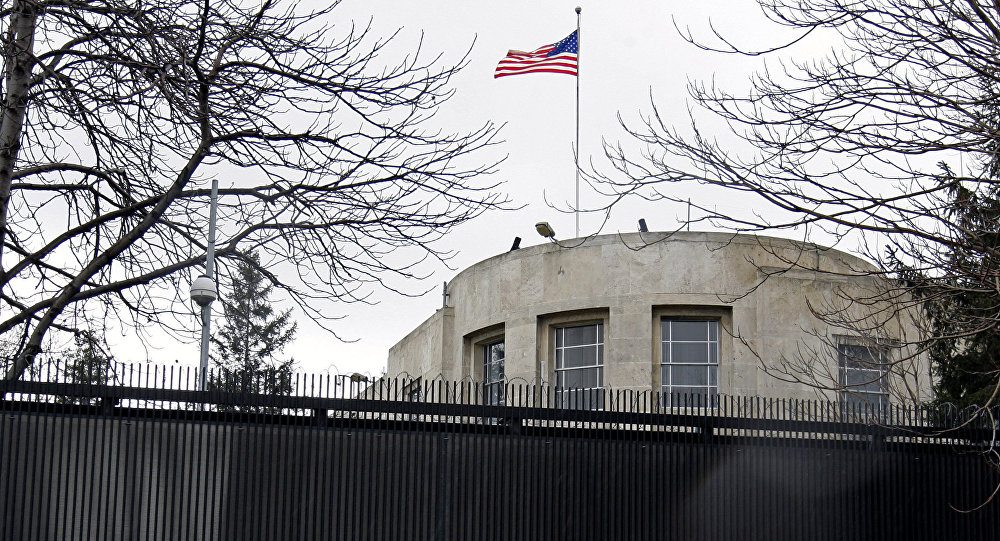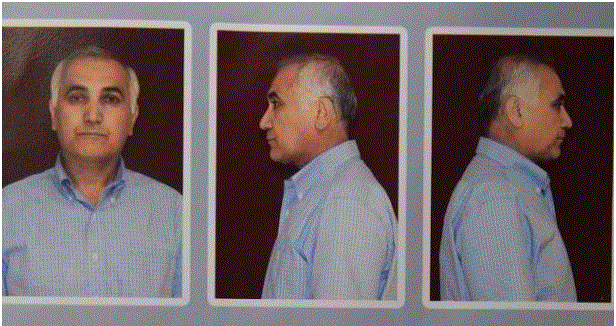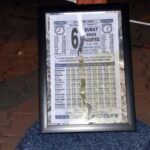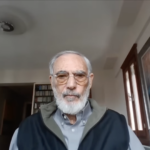“Ten years from now the election in Iraq will be seen the same way
that the fall of the Berlin Wall is now.”
— Wall Street Journal Senior Editor Robert L. Pollock,
speaking on Turkish television in a live feed, 25 February 2005.
I realized recently that the time had come for a moment I’d been waiting for through ten long years. It’s nothing special, really. Mostly just a personal wish to fulfill, to ask this question:
“So, Mr. Pollock, how well did that prediction pan out?”
No, I don’t really expect an answer. It was only sheer luck that I saw the Pollock interview in the first place — I was just flipping through Istanbul’s cable tv channels on a cold February evening. At the moment that Mr. Pollock uttered that mendacious statement, veiled as a good-willed, optimistic prediction for the future, I knew what the result would be ten years down the road — no need for Nostradamus. That’s why I quickly jotted it down in a notebook; that’s why I reminded myself of that tidbit from time to time over the past 120-plus months. And Jon Stewart has already thoroughly explored how ultimately hollow it is to retrospectively expose the errors of prominent public figures. (1)
Instead I want to focus on a different aspect of the issue. Robert Pollock came to Turkey in February 2005 with then-U.S. Undersecretary of Defense Douglas Feith, one of the primary architects of the U.S. invasion of Iraq (on false grounds). At that time the AKP government was just beginning to be castigated by the neo-conservative sector of U.S. media and academia for various real-or-imagined malfeasances: the 1st March 2003 Resolution (1 Mart Tezkeresi), uncooperative behavior in Iraq, anti-Semitism, “green money,” friendliness with Iran, etc. (2) Even at that point neo-cons regarded the AKP as an insidious, creeping evil, but now, ten years on, many have forgotten just how negative, even derogatory and condescending, the narrative always was. For an example, refer to arch neo-con Michael Rubin’s “classic” essay on the AKP from the Winter 2005 edition of the Middle East Quarterly. (3)
After accompanying Mr. Feith on his Turkish jaunt, Mr. Pollock anointed himself an expert on all things Turkish; his live-feed appearance on Turkish TV was apparently only one product of that excursion. But another, more malicious outcome was the violent attack on the AKP government he published immediately after returning to the U.S. This was an op-ed article that he wrote for the Wall Street Journal. (4) It caused an uproar and was notable on a number of levels. First is the scornful, post-Cold War triumphalism that enabled Pollock to deride the boutique leftism of Istanbul’s elites; his attitude was (and is) that of the imperial center mocking the provincial yokels. But that disdain is doubled-sided: the obverse of Pollock’s animosity towards leftists is his fear of any sort of “Islamic” politics. Even at that point Pollock uses “insidious” to characterize the AKP; even at that point, Pollock reverts to the “AKP = NSDAP” theme; even at that point, Pollock refers to U.S. hopes for the AKP’s “example of democracy” in the past tense.
I’ve never forgotten Pollock’s column because it exemplifies the neo-con attitude towards Turkey at that time. Overall, Pollock’s editorial is stunning for both the ignorance he displays concerning Turkey, and the breathtaking arrogance he exudes while expressing that ignorance. Towards the column’s end his real feelings emerge: Turkey is apparently populated by a mass of ingrates who have forgotten all of the wonderful things that America has done for them. His sympathy is for those few remaining Turkish citizens who are pro-U.S. and who are defending “Atatürk’s legacy.” And don’t forget: Pollock’s screed appeared on the editorial page of the world’s leading financial daily. Hysterical writing such as Pollock’s set the tone for the anti-AKP trend of the following years.
Other prominent neo-con authors also shifted to alarmist, even hysterically anti-AKP, anti-Tayyip Erdoğan themes over 2005-2007. As mentioned above and in Note 3, in 2004-2005 Michael Rubin’s attitude towards the AKP shifted from “I feel suspicion” to “HITLER!!!” David P. Goldman, who wrote for a decade under the pretentious nom de plume of “Spengler” for the Asia Times Online before revealing his identity, also began to savage the AKP government in those same years. Previously Goldman had focused his sneering condescension on Islam in general and more specifically on Tehran. Apparently it was only in 2005-2007, when it became clear that the AKP was here to stay, that Goldman divided his attention. (5) In 2004 Goldman clearly already dislikes Tayyip Erdoğan, but he’s searching for a rhetorical position that will enable him to find plausible expression for his visceral hatred. By 2007, and with Ömer Taşpınar’s aid, Goldman had begun to work the same themes that Rubin and Pollock had adopted in the previous two years. Goldman was also one of those who took up the “Turkish economic bubble” theme years ago.
The facile approach to these authors would be to wave them off as extremists. True, Michael Rubin’s ultra-paranoid, enemy-filled cognitive world is one that few others inhabit. However, the same themes that these alarmist ideologues were churning out in 2005-2007 (and later) became exactly the slogans taken on and multiplied into various derivative forms by the Turkish opposition in 2008-2011. I would think that with enough time and effort, the key actors responsible for the transfer of neo-con themes to the Turkish anti-AKP opposition can be traced. But at the same time, some Turkish pundits such as Taşpınar were also developing similar themes during that key 2005-2007 phase. That is the conveniently-forgotten reality lost in the heated political struggles of the past five-to-six years: the entire narrative, claiming that the AKP was the “model” of democracy that the U.S. would bring to the region, was a later and more short-lived neo-con invention, created for political purposes by Bush Administration lackeys. In actuality, the AKP and Tayyip Erdoğan were attacked vehemently both domestically and internationally starting no more than a nanosecond after their November 2002 election victory.
For some writers no detective work is needed, though. When Ceylan Yeğinsu writes polemical anti-AKP or anti-Tayyip Erdoğan articles, as she did once again on 8 July 2015 (6), she is simply repeating the ideological content formulated by the Neo-Cons and other pundits around ten years ago. As for Mr. Pollock, as late as 2010 he was still re-using the same materials and talking points he had collected back in 2005-2006. (7)
NOTES
(1) http://thedailyshow.cc.com/videos/w42j6j/the-rummy-returns—learning-curves-are-for-pussies
(2) After the 1 March Resolution incident, U.S. Deputy Secretary of Defense (and prominent neo-conservative) Paul Wolfowitz was dispatched to Turkey to chastise everyone for being too democratic.
(3) In retrospect, it is remarkable how many of the themes present in this article later became themes embraced by the Turkish anti-AKP opposition: http://www.meforum.org/684/green-money-islamist-politics-in-turkey. Who knew that the Kemalist elites were actually neo-cons? This column can be compared to an essay Rubin wrote the previous year for The National Review: (http://www.nationalreview.com/article/211792/talking-turkey-michael-rubin). The National Review article is actually calmer and less alarmist, but already exudes anti-AKP suspicion and is decorated with basic factual errors. Doğan Media Group, for example, is characterized as “pro-government,” and Cumhuriyet newspaper is “usually reliable.” On the other hand, Rubin adamantly argues that Turkey is a democracy and should be referred to as such with no other qualifying terms such as “moderate Islamic”; of course, he thought he was defending Turkey’s Kemalist traditions by writing that.
(4) "The Sick Man of Europe — Again." Wall Street Journal. February 16, 2005. A14, col. 3. http://www.wsj.com/articles/SB110851241259955899
(5) “Careful What You Bush For.” Asia Times Online. 3 August 2004 (http://www.atimes.com/atimes/Front_Page/FH03Aa02.html); “Why Does Turkey Hate America?” Asia Times Online. 23 October 2007 (http://www.atimes.com/atimes/Middle_East/IJ23Ak01.html). This column is notable for itslengthy reference to a paper written by Ömer Taşpınar, who was also at that point already publishing essays steeped in anti-AKP suspicion for the Brookings Institution; see: “The Anatomy of Anti-Americanism in Turkey,” http://www.brookings.edu/~/media/research/files/articles/2005/11/16turkey-taspinar/taspinar20051116.pdf. In that essay Taşpınar exemplifies a stance that would later become known as the “White Turk” position on Turkish politics; it is that perspective that Goldman picks up for his essay. Taşpınar also explains clearly how the Bush Administration tried to use Turkey and the AKP, for purely political and conjunctural ends, as a “model” for the type of democratic system they wanted to import to the region.
6) “President Erdogan Is Accused of Stalling as Turks Await a Government.” The New York Times. 8 July 2015. http://www.nytimes.com/2015/07/09/world/europe/turkey-elections-delay-in-coalition-recep-tayyip-erdogan.html. Yeğinsu’s timing is ironically flawless: not only did President Erdoğan appoint PM Davutoğlu to carry out the first negotiations for forming a government at nearly the same hour that her article was published on-line; that same day Yıldıray Oğur politely ridiculed those repeating that theme; see: https://serbestiyet.com/yazarlar/yildiray-ogur/eee-baraji-gectik-simdi-ne-yapacagiz-153159 (Ceren Kenar also pointed this out on twitter). Yeğinsu’s article is of the same weak polemical material that characterizes her anti-AKP stance, and all of the controlling ideas in the article are taken directly from the Turkish opposition press.
7) See: “Erdogan and the Decline of the Turks.” The Wall Street Journal. 3 June 2010. http://www.wsj.com/articles/SB10001424052748704875604575281392195250402
Yazıyı beğendiysen, patronumuz olur musun?
Evet, çok ciddi bir teklif bu. Patronumuz yok. Sahibimiz kar amacı gütmeyen bir dernek. Bizi okuyorsan, memnunsan ve devam etmesini istiyorsan, artık boş olan patron koltuğuna geçmen lazım.
Serbestiyet; Türkiye'nin gri alanı. Siyah ve beyazlar içinde bu gri alanı korumalıyız. Herkese bir gün gri alanlar lazım olur.



















